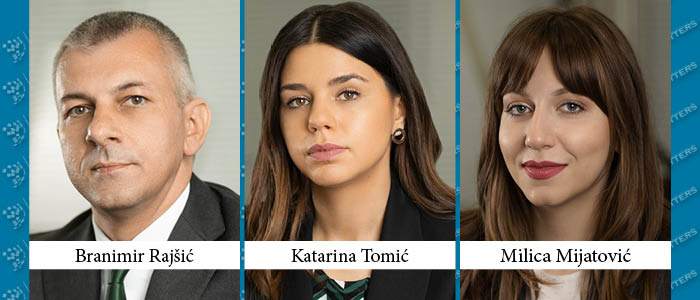On 29 December 2023, the Government of the Republic of Serbia adopted the Regulation on financial support for dual education ("Official Gazette of the RS", No. 120/2023), which entered into force on 6 January 2024 (hereinafter: the Regulation).
The Regulation further regulates financial support for dual education through aid to schools and the economy for the purpose of educating students in Shortage occupations. This support is granted through the allocation of funds in two manners:
- subsidizing a part of the learning-by-doing remuneration paid by employers to students enrolled in dual educational profiles, where students are educated for shortage occupations ;
- supporting schools for enrolling students in dual educational profiles, where students are educated for Shortage occupations.
The competence for determining the type and amount of financial support, the conditions for applying for them, announcing and conducting the contest, as well as for determining the list of Shortage occupations in accordance with the provisions of the aforementioned Regulation, belongs to the Office for Dual Education and NQFS (hereinafter: the Office).
Subsidizing part of the remuneration for learning-by-doing
The first type of financial support for dual education allows employers to claim payment for a part of the remuneration to students attending dual educational profiles for Shortage occupations, up to a maximum of 50% of the net amount of the minimum remuneration for learning-by-doing, with applicable contributions. However, should unallocated funds persist in the fund following the conducted contest, subsidies can be granted in a higher amount than specified.
The Regulation mandates that employers must obtain the following documents to be able to participate in the contest:
- Confirmation of the fulfillment of the conditions for learning by doing;
- Concluded agreement or pre-agreement on dual education with school;
- Confirmation from the Tax Administration that all due obligations have been paid;
- Proof of settled financial obligations to students for employers who already have students in learning-by-doing;
- Additional proof of the fulfillment of the conditions for applying for subsidies provided by the Contest.
Support to schools for enrolling students in dual educational profiles where students are trained for Shortage occupations
The second type of financial support for dual education allows schools to enroll all first-grade high school students in the corresponding dual educational profile, thereby ensuring additional income in nine equal monthly installments determined by the contest, in addition to the legally prescribed remuneration for learning-by-doing.
The agreement for the allocation of funds for this type of support is concluded between the school, the Office, and the student, or their parent or other legal representative.
Students are expected to regularly attend classes and achieve positive results. Otherwise, they may lose the right to receive individual subsidy installments.
Reporting
Regarding both types of financial support, it should be noted that the Regulation imposes an obligation on employers or schools to report to the Office on the use of dedicated subsidy funds by submitting periodic and final financial reports within contractually specified deadlines.
In case of determined misallocation of funds, the Office will terminate the contract and demand the return of transferred funds. Employers or schools will be obligated to return the funds with statutory interest.
Conclusion
Through this Regulation, the Government of the Republic of Serbia aims to encourage a larger number of students to choose dual educational profiles, thereby overcoming the problem of a shortage of workforce in Shortage occupations such as locksmiths, machine operators, bakers, chefs, electricians, mechanics, etc. At the same time, with the realization of the purpose of the Regulation, entrepreneurs in deficit activities will also be able to benefit, in a way that they will find the labor force that is currently lacking in the labor market in the Republic of Serbia more easily and favorably.
By Marko Ilic, Senior Associate, and Dimitrije Stepanovic, Associate, JPM & Partners


























